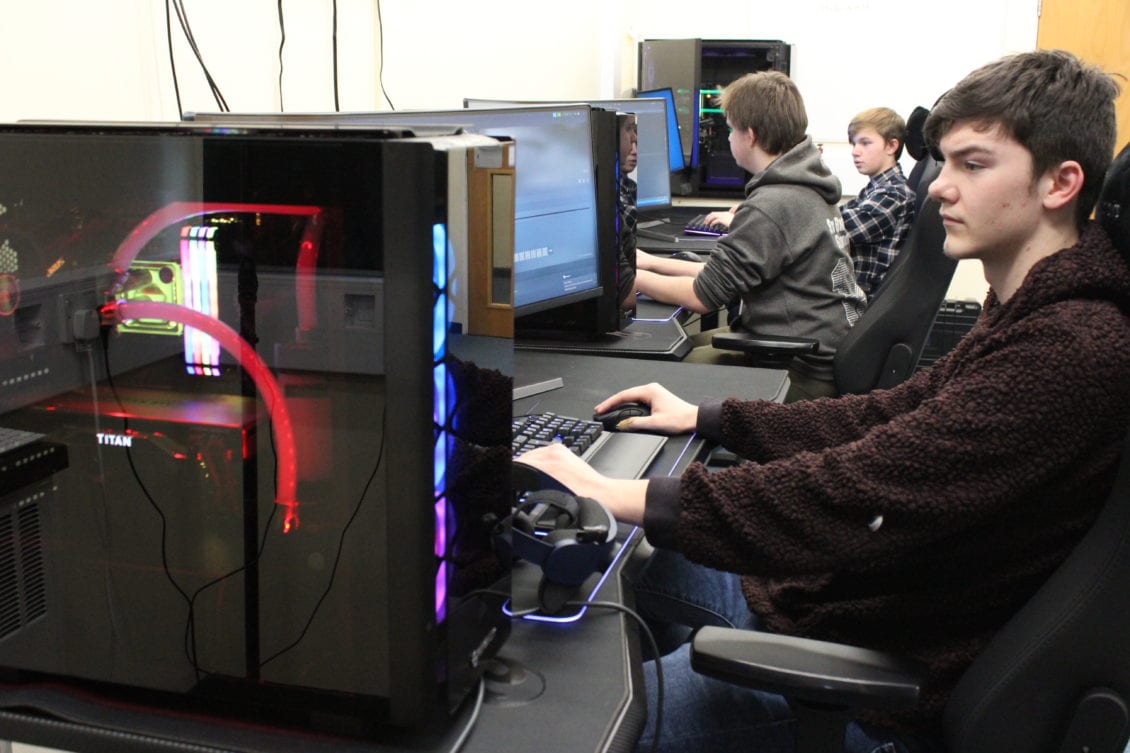The demand for digital skills is continuing to grow in North Wales, as the regional economy and workforce adjust to the challenges arising from the coronavirus pandemic.
The digital sector is one of the key growth areas identified by the North Wales Regional Skills Partnership, where employer demand exceeds supply.
Figures published by the Partnership in 2019 suggested that 14.7% more qualified people are needed for professional occupations in the digital sector to replace demand up to 2024, alongside a 12.9% increase in those skilled for associate professional and technical occupations.
The Partnership’s latest Covid-19 ‘Insight to North Wales Labour Market’ report (July-August 2020) indicates that the digital sector’s demand for skills will continue to grow significantly despite the coronavirus pandemic.
The Regional Skills Partnership is a voluntary partnership and dedicated workstream of the North Wales Ambition Board. Its role is to engage with growth sectors and industries in the region to identify the current and future skills needs of North Wales.
David Roberts, Chair of the Regional Skills Partnership, said: “What our research shows is that the demand for digital skills has in fact gone up due to the pandemic – not only among digital industries, but across the board.
“Businesses and employers in all sectors have had to adapt their ways of working and taking their products or services to market. As such, we’ve seen an increase in the use of online technologies, with people working remotely through digital platforms. So skills like software development, social marketing and e-commerce are in huge demand, even more so than before.
“We cannot emphasise enough, despite the challenges of the ‘new normal’, that there are exciting options for today’s young people and that employers are still crying out for talented, qualified recruits. There are also fantastic opportunities for businesses who can provide digital services.”
Neil Thomas runs digital agency Brandified, based at M-Sparc on Anglesey. He is also part of a creative collective, Het Greadigol, which brings together a multi-disciplinary team of designers, web developers, and content producers – with digital delivery at the core of their offering.
Neil gained a BTec National Diploma in Interactive Media at Coleg Menai over ten years ago, and says that qualifications and skills in digital subjects can open many doors – especially post-Covid.
He said: “Digital businesses like mine are perfectly positioned to adapt to the current circumstances given that a lot of the work can be carried out remotely in line with coronavirus restrictions.
“We’ve definitely seen a big increase in demand for our services as businesses have had to take a lot of their trading, marketing and day-to-day operations online. Being able to provide the digital skills to help them do so gives us a massive competitive edge.
“The digital sector offers brilliant opportunities to live and work in rural areas, such as many parts of North Wales. With world-class learning facilities and courses on offer at Grŵp Llandrillo Menai, as well as excellent creative centres like M-SParc, there’s everything we need to succeed.”
Grŵp Llandrillo Menai is one of many members who sit on the Regional Skills Partnership. Dafydd Evans, Chief Executive said: “Our driving aim is to support the economy of North Wales by equipping local people with the skills and qualifications they need, and working with others to ensure the competitiveness and success of the region.
“This is now more important than ever as we face the economic challenges presented by the Covid-19 crisis, which will undoubtedly have a significant impact on the local workforce, and young people in particular.
Dafydd added: “We are in regular contact with local employers to get their feedback and to monitor what exactly industry is looking for. The one message they convey to us loud and clear is that there is a big demand for skills in many of our region’s growth sectors, especially digital skills.
“Our challenge now is to respond positively to this opportunity by attracting as many candidates as we can for key vocational courses. We will also continue to invest in our facilities to support skills development, and during 2020 we will have spent around £2m on IT infrastructure, including Virtual Reality suites.”








Leave a Reply
View Comments